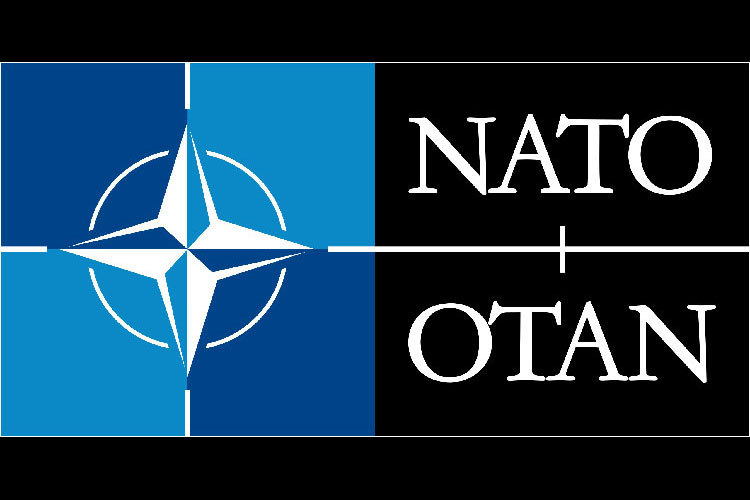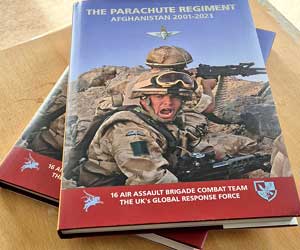North Atlantic Council Statement on Russia’s withdrawal from the Treaty on Conventional Armed Forces in Europe or CFE.
~
Press Release, Brussels, 09 June 2023: North Atlantic Council Statement on Russia’s withdrawal from the Treaty on Conventional Armed Forces in Europe. The NATO Invitee [Sweden] associates itself with this Statement.
NATO Allies condemn Russia’s decision to withdraw from the landmark Treaty on Conventional Armed Forces in Europe (CFE), a cornerstone of Europe’s security architecture. The CFE Treaty establishes legally binding and verifiable limits on key categories of conventional military equipment of the States Parties.
Russia has for many years not complied with its CFE obligations, in particular by ceasing its implementation of the CFE Treaty without a legal basis in 2007. Russia’s war of aggression against Ukraine, and Belarus’ complicity, is contrary to the objectives of the CFE Treaty.
Russia’s decision to withdraw from the CFE Treaty is the latest in a series of actions that systematically undermines Euro-Atlantic security. Russia’s decision further demonstrates Moscow’s continued disregard for arms control, including reciprocity, transparency, compliance and verification. We have repeatedly called on Russia to comply with the Treaty. Russia has not engaged constructively, and has not taken steps towards full compliance. Allies urge Russia to implement its commitments and obligations, and to use the remaining time before its withdrawal to reconsider its decision.
We remain united in our commitment to effective conventional arms control as a key element of Euro-Atlantic security, taking into account the prevailing security environment and the security of all Allies. This complements the Alliance’s deterrence and defence posture. We reiterate our full commitment to reducing military risk, preventing misperceptions and conflicts, building trust and confidence, promoting transparency and verification, and, thereby, contributing to peace and security. Allies will continue to consult on the implications of Russia’s withdrawal from the CFE Treaty and its impact on the security of the Alliance.
~ $ ~
Statement of the Russian Foreign Ministry
Press Release, Moscow, 09 June 2023: [auto-translated] Statement of the Russian Foreign Ministry in connection with the sending of notifications by the Russian Federation to the states parties to the Treaty on Conventional Armed Forces in Europe (CFE).
On June 9, Federal Law No. 179-FZ of May 29, 2023 “On the denunciation by the Russian Federation of the Treaty on Conventional Armed Forces in Europe” came into force. In this regard, the Russian side sent notifications provided for by this Treaty (also known as CFE) to its depositary (the Netherlands) and other participating states through their embassies in Moscow, as well as through delegations to the Joint Consultative Group on CFE in Vienna. Russia notified all participating states of its decision to withdraw from the CFE Treaty 150 days after the notification was sent. Thus, it will take place at 00:00 on November 7 this year.
Our notifications note that the Russian Federation considers it necessary to withdraw from the CFE Treaty due to exceptional circumstances relating to the Treaty that have threatened its supreme interests. Such circumstances include, in particular:
- The accession of new states to NATO without their joining the CFE Treaty or the transition from the “Eastern” group of CFE member states to the “Western”, as well as the deployment of conventional weapons of the “old” NATO members on the territories of its “new” members, as a result of which bypassing or exceeding the CFE “group” restrictions.
- Failure by the CFE member states that are members of NATO, adopted in Istanbul on November 19, 1999, to accelerate the ratification of the Agreement on the Adaptation of the CFE Treaty, as well as to lower the levels provided for by this Agreement.
- Other actions of a number of CFE member states that run counter to the objectives of the Treaty, in particular, actions related to the transfer of conventional weapons.
In connection with the withdrawal from the CFE Treaty, two more legally binding documents related to it will cease to be valid in relation to the Russian Federation, of which all participating States have also been informed. This is the so-called. The Budapest Agreement of November 3, 1990 on the maximum levels for the presence of conventional weapons and equipment of the six states parties to the Warsaw Pact, as well as the so-called. The Flank Document of May 31, 1996. The first was aimed at determining the levels of conventional weapons for each of the participants in the then Warsaw Pact and the mechanism for changing them, and the second was a temporary solution to the problem of flank restrictions that arose in connection with the demise of the USSR.
Upon receipt of the Russian notification, the CFE Depository will have to convene, within the time period stipulated by the Treaty (i.e., no later than 21 days later), a conference of member states to consider issues related to Russia’s withdrawal from the Treaty. At the conference, the Russian side will state its firm position, based on the Federal Law on the denunciation of the CFE Treaty, publicly once again convey to the NATO countries and the world community its point of view that it was the “collective West” with its destructive actions that made it impossible for us to stay in the CFE Treaty.
Recall that the Treaty was concluded in 1990 between the Warsaw Pact member states and NATO member countries. It established the balance of forces of the participants in these military-political alliances at lower levels, and limited the possibility of deploying their conventional weapons along the line of contact. However, subsequent events – the cessation of the existence of the Warsaw Pact and the USSR, the emergence of hotbeds of conflicts on our territory, and subsequently the expansion of NATO to the east – required its adaptation to new realities. At the insistence of Russia, on November 19, 1999, the Agreement on the Adaptation of the CFE Treaty was signed in Istanbul, which, however, did not enter into force due to the destructive position of the Western participating States, which refused to ratify it and continued to circumvent the restrictions of the original CFE Treaty by expanding the alliance. Under these conditions, Russia suspended the CFE Treaty in 2007, leaving the door open for restoring the viability of the European conventional arms control regime. The Western countries had more than enough time to show common sense, but they chose to follow the path of confrontation with Russia, which was reflected, among other things, in the new NATO strategic concept, not to mention all their hostile practical actions against our country , including pumping up the Kiev regime with weapons and military equipment.
As emphasised in the Russian notifications, the recent accession to NATO of Finland, which is not a CFE state party, but at the same time borders on part of the territory of the Russian Federation included in the area of application of the Treaty, the prospect of deploying conventional armed forces of third states in Finland, as well as ongoing admission procedures into the alliance of Sweden, which is also not a member state of the CFE Treaty, significantly disrupt the safe and stable balance of conventional armed forces in northern Europe and are the ‘last straw’ that made it necessary for the withdrawal of the Russian Federation derivations from the Treaty.
Back in 2004, during the ratification of the Agreement on the Adaptation of the CFE Treaty, the State Duma adopted a statement stating that in the event of exceptional circumstances that could jeopardise the supreme interests of the Russian Federation, political, diplomatic and other measures should be taken to eliminate such circumstances stipulated by the Federal Law ‘On International Treaties of the Russian Federation’, affecting the CFE regime and the Agreement on the Adaptation of the CFE Treaty.
It is clear that under the new conditions the Treaty has finally become a relic of the past. Our opponents should have no illusions that Russia can return to it.
Obviously, the time has come to take the measures recommended by our legislators in due time. This is evidenced by the unanimous vote for the Federal Law on the denunciation of the CFE Treaty in both chambers of the Federal Assembly of the Russian Federation.
The Russian Foreign Ministry will take all the necessary steps for its strict implementation.
~




















